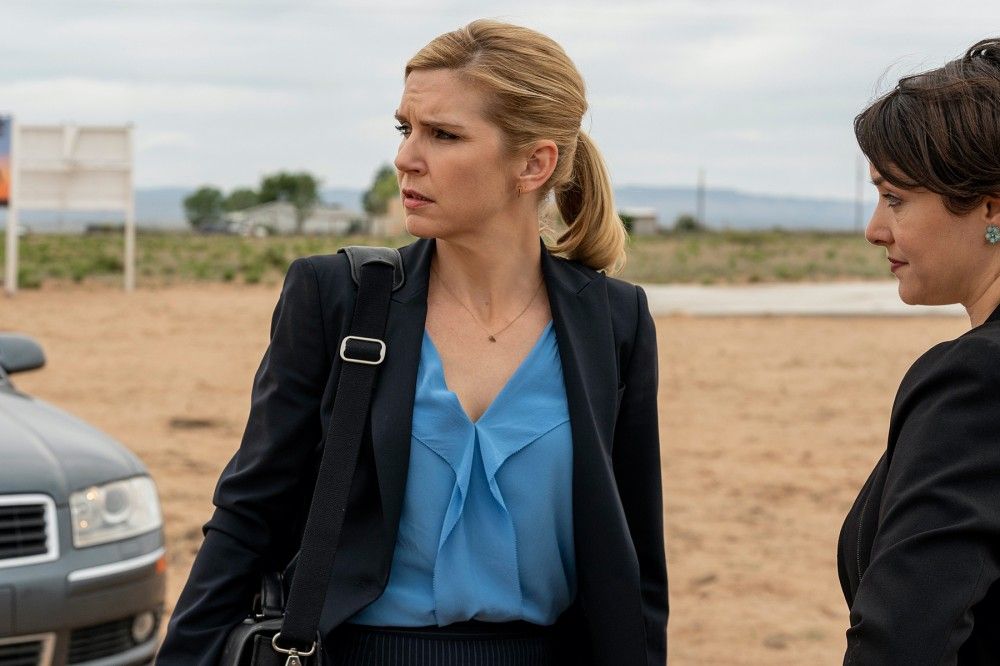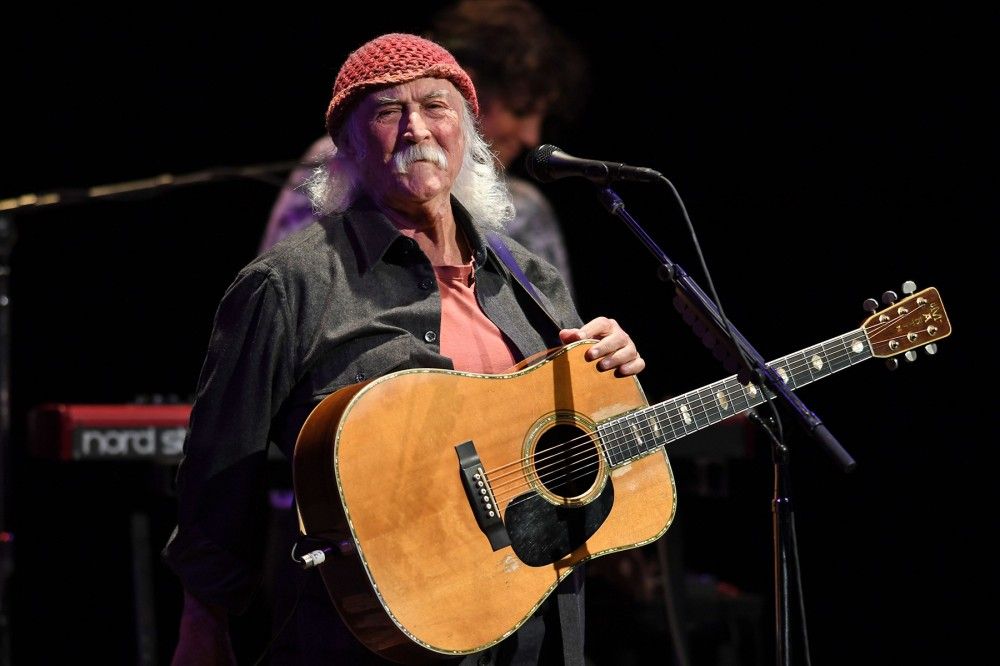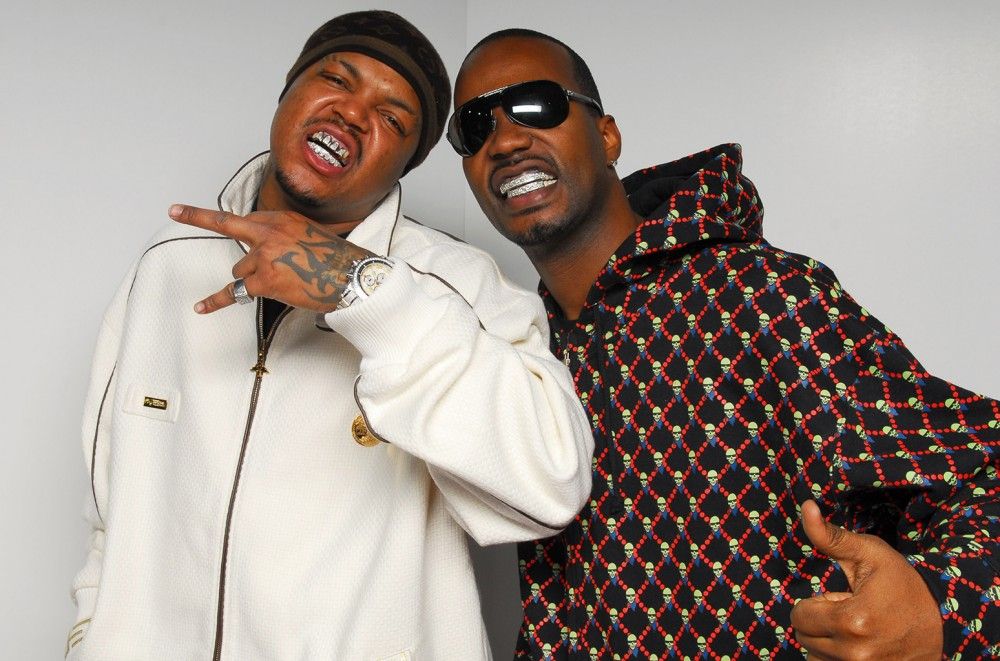
'Better Call Saul' Recap: Walking the Same Line
A review of this week’s , “The Guy For This,” coming up just as soon as I dismantle a Rubik’s Cube…
“When you’re in, you’re in.” —Nacho
Last week’s episode concluded with Nacho and Jimmy reuniting for the first time since early in Season One. “The Guy For This” doesn’t so much break down the wall between the show’s worlds as it relocates it a bit so that Jimmy is for the moment on the cartel side of it, while Kim is largely holding down the law side on her own.
The episode is keenly aware of this shift, and the impact it’s having on our heroine and antihero. Kim reacts to Jimmy’s rising professional fortunes as if he has invited a third person into their relationship without her permission; when he declares that Saul just had his best day yet, Kim grouses, “Huh. Good for Saul.” But the hour also smartly links them through the same basic dilemma. Both have convinced themselves they can do exactly what they want professionally, and both are rudely reminded of the limits of their power. Jimmy’s money is coming from a drug kingpin, and Kim’s from a bank, yet they each find themselves forced to do unsavory things for clients who won’t take no for an answer.
Kim thought she had arranged the perfect balance of financial and emotional fulfillment by joining Schweikart and Cokely. Their associates would do most of the heavy lifting on Mesa Verde, leaving Kim free to pursue her more soul-nurturing criminal defense work. But as Rich Schweikart gently but pointedly reminds her, Mesa Verde keeps the lights on at the firm, not her pro bono clients. So when Mesa Verde’s new call center in Tucumcari(*) hits a roadblock in the form of a stubborn local resident named Acker, Kim has no choice but to put her do-gooding on hold so she can kick an old man out of the house he built and has lived in for 30 years.
(*) Tucumcari is a two-and-a-half-hour drive from Albuquerque, which would make a headache and a half for Kim to travel for this. But it is also a fun name to say, and one of the places name-checked in “Willin’” by Little Feat, so it’s worth at least one headache.
This is an unpleasant task, and the spiritual opposite of what Kim has been trying to do with the law. Mesa Verde is legally in the right to claim the land based on the lease Acker signed in 1974, and, as Kim points out, all the other neighbors took the nominal payout the bank offered them to move. But legally right and morally right aren’t necessarily the same thing, and Kim feels like trash trying to bribe Acker into leaving. She soon turns on him after he dismisses her as a soulless rich woman, but it’s not until their next encounter that we understand just how vulnerable the spot is where he hit her with that insult. When she returns to Acker’s house later to help him pack and find a new house, she lays bare the past she and the show have kept hidden from us until now: She grew up so poor that her family was constantly skipping out on landlords in the middle of the night. It’s a biographical detail that fits everything we’ve seen about Kim as a striver, as a champion of the powerless, and as someone who can move in the sphere of someone like Rich without ever seeming totally comfortable there. But Acker doesn’t know Kim like we do, and assumes her words are just more lies, sending her away with the contempt-filled kiss-off, “You’ll say anything to get what you want, won’t you?”
Jimmy assumes the danger he’s in is more physical than what Kim endures. We pick up right where we left off, with Jimmy being taken for an involuntary ride by Nacho. Jimmy understandably believes this is some long-delayed punishment related to the incident involving Tuco, his grandmother, and the twin skaters, and is briefly relieved to learn that Tuco’s cousin Lalo wants to hire him as Krazy-8’s lawyer. But his alarm bells go off when he finds out that his task is to feed Domingo information to hand to the authorities that will hurt Gus. This is, at minimum, highly unethical(*), on top of entangling him with criminals far more dangerous than his current client base. Whether it’s because he still has some professional standards, or is simply afraid of an ongoing relationship with the Salamanca family, Jimmy’s desperate attempt to avoid taking the job is perhaps the clearest sign so far this season that he remains Saul Goodman in professional name only.
(*) My gleaned-from-TV knowledge of criminal law only goes so far, so I can’t speak to whether it is a crime.

Max Arciniega as Domingo and Bob Odenkirk as Saul.
But Lalo, as we have seen, doesn’t believe in the concept of “No,” and soon the man who would be Saul finds himself in the criminal courts building, making nice with Domingo and coaching him through the play they will soon perform for law enforcement. Since this is a con job more than it is a legal job, Jimmy of course proves a natural at it, even as his audience turns out to be a pair of DEA agents we know painfully well: Hank Schrader and Steve Gomez.
The Saul producers have been open about Dean Norris and Steven Michael Quezada appearing this season, perhaps realizing that surprise isn’t the be-all, end-all for this kind of show(*). Still, Hank gets one hell of an introduction. First we see a very familiar beer gut enter the frame. Then Hank and Steve’s silhouettes are moving together, out of focus. Then we can see the back of Hank’s head — the shape distinctive, even if he’s one of many bald Breaking Bad-ies — and finally his badge, before Hank himself comes into focus. If it’s not exactly the shark from Jaws appearing piecemeal before Roy Scheider finally gets a look at it, it’s still a build-up that captures his import to the parent show, while also making it clear to the subsection of the audience who only watches Saul that these guys are Kind Of A Big Deal.
(*) Though based on some of the extreme measures Vince Gilligan took to keep one of the El Camino cameos a secret, it could also be that he and Peter Gould understand that there are only two actors whose potential Saul appearances have to be completely hidden from the audience until they actually happen.
One of the most notable improvements between the first two Breaking Bad seasons was the depth the show gave Hank, who was a two-dimensional macho blowhard in most of his early appearances. Some of that onscreen transformation can be ascribed to the events Hank went through that season (Tuco, his time in El Paso). But it’s not hard to write off his initial characterization as his brother-in-law’s view of him. Until Walt began cooking meth, he wasn’t particularly close to Hank, and perhaps never glimpsed the depth lurking beneath the bluster. For the moment, we’re seeing Hank in that swaggering, alpha-male mode, but it’s only a brief scene that’s primarily about getting Jimmy entangled in the war between Lalo and Gus. Hank and Gomez make sense as unwitting players in that war, not only because they’re the local men with badges we know best, but because it was established on Breaking Bad that Krazy-8 was their informant. Like the building of the superlab or Domingo’s nickname, it’s not a piece of franchise lore in crucial need of explanation. But in this case, it feels like the fan service and the storytelling are working hand in hand.
For Jimmy, it’s a victory, but perhaps a pyrrhic one. He makes a chunk of cash in a single day, and he impresses Lalo. But now he’s a part of this thing that is very dangerous to body and spirit. The episode opens with a classically Heisenberg-ian vignette about the ice cream cone Jimmy had to abandon on the sidewalk when Nacho came for him. In intense close-up, we see one ant after another emerge from the cracks to take advantage of this unexpected bounty of sugar. Like Hank’s belly, the symbolism’s not hard to miss: Jimmy has cast aside something sweet (a relatively honest legal career like the one he had before the war with Chuck) for something destructive, and he’s as oblivious to the carnage he’s starting to cause as the passers-by on the street are to what’s happening down at ant level. Later, Jimmy returns to the same curb to find the ice cream somehow still there after all this time. He briefly tries shooing away the bugs, before walking off himself. Like his protests with Lalo, there’s a brief stab at something more decent, but, increasingly, he is becoming true to his new persona.
Still, he’s Jimmy McGill at heart, and he and Kim are, for the moment, more of a match than they aren’t. Jimmy returns from his long day with Nacho and Lalo to find Kim drinking on the apartment balcony. She’s cold to him and quickly returns to her work. But when she finishes the long drive back from Tucumcari, now it’s Jimmy waiting for her on the balcony, ready to share a smoke and get her the beer she so obviously needs. They say nothing, because Jimmy knows her well enough to understand that what she wants right now is for her boyfriend to be there for her. He goofs around pretending to drop one of the bottles, and in the process inspires her to hurl hers into the parking lot, and then another, and another, as Jimmy joins in. Again, a mess is being made, but this time, it’s a mess that makes Kim Wexler feel better. She and Jimmy are basically starring in two separate shows at the moment, but occasionally they can meet in the middle and briefly remind each other, and us, of why they belonged together in the first place, and how much it’ll hurt whenever they’re fully apart.
Some other thoughts:
* This is an excellent Nacho episode. He’s doing his best to play both sides against the middle, here earning Lalo’s trust in a way that will hurt Gus, by giving the DEA ( Domingo) the locations of some Fring organization dead-drops. But the whole thing remains a prison for him, and for his father. Mr. Varga swings by his son’s swanky new house to tell him about an offer on the family business. Unlike the one Mesa Verde makes for Mr. Acker’s house, it’s extremely lucrative — which makes Mr. Varga mistrust it just as much as Acker mistrusts Kim. In this case, though, the stubborn old man seems right to be suspicious, given how desperate Nacho is to get his dad away from Gus’s crosshairs.
* Mike, meanwhile, is in pure destructive guilt mode. At the bar where he once took Werner for a night out, he notices the Sydney Opera House postcard that inspired Werner to tell the story of how his father helped build it. It’s a painful reminder of the friend he murdered, and Mike first demands, then pleads for the bartender to take it off the wall. The gesture doesn’t salve him for long, and on his drunken walk home, he gladly breaks the arm of one of the young toughs who tries to mug him, then looks almost disappointed when none of the kid’s friends want to try their luck with him.
* That’s veteran character actor Barry Corbin (of, among many many other things, Northern Exposure, No Country For Old Men, and several seasons of One Tree Hill) as Acker. It’s always a notable expense for the show to fly in non-local actors, so they tend to use that money sparingly. Here, it was spent very wisely.
* Finally, more evidence that Jimmy isn’t really Saul yet: He completely lowballs himself with Lalo, asking for the paltry sum of $7,925, which is much less than even the cash Lalo has on his person. He’ll have a stronger grasp of both his own worth and that of drug dealers by the time he meets Walt and Jesse.



